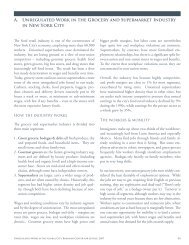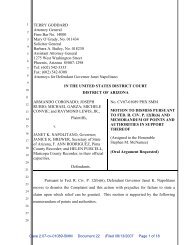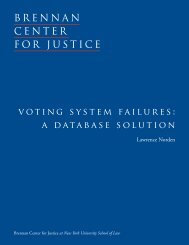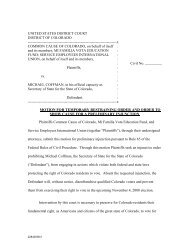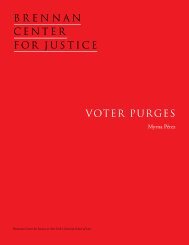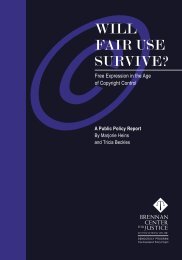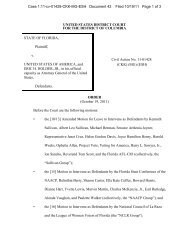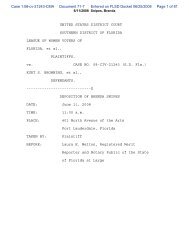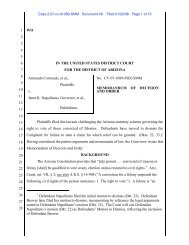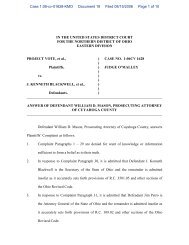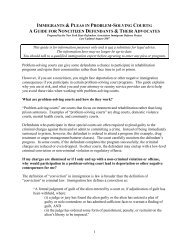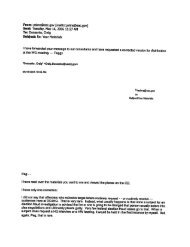MEMORANDUM OF LAW IN SUPPORT OF PLAINTIFFS' MOTION ...
MEMORANDUM OF LAW IN SUPPORT OF PLAINTIFFS' MOTION ...
MEMORANDUM OF LAW IN SUPPORT OF PLAINTIFFS' MOTION ...
- No tags were found...
You also want an ePaper? Increase the reach of your titles
YUMPU automatically turns print PDFs into web optimized ePapers that Google loves.
In addition, the court’s assessment of the government’s potential interestsjustifying the dual system do not withstand the scrutiny of Connecticut’s electoral historyor ballot access practices in the rest of the nation. For instance, the Tansley courtemphasized that the legislature could have believed that conventions better representedthe interests of party members from districts with multiple municipalities. Id. at 517.Aside from the serious question about whether this assertion is logical, the legislativehistory from the 1955 enactment and from efforts to amend the law in 1993 and 2000hardly support a finding that the purpose of the multi-town system is to ensure that allinterests are represented in the nominating process. See Rapoport Decl. at 10-11, 12-13 (discussing the background of the 1955 enactment and efforts to amend the law in1993). See also, 4/25/01 House Session Transcript, supra; 5/17/01 Senate SessionTranscript, supra.In addition, the state’s potential “interest in not having wide open primaries,”Tansley, 315 F. Supp. at 517, can certainly be met with a significantly less burdensomesystem. This is abundantly proven by the evidence of the number of primaries in singletowndistricts over the last 20 years, where there are significantly more primaries than inmulti-town districts, but the system is hardly flooded. See McLoughlin Decl. at ExhibitC. Furthermore, almost every other state in the nation is able to satisfy this same interestwith a far more open system of primary ballot access. See 50-State Chart. See alsoHolman Decl. at Exhibits A & B (demonstrating that even states with minimal ballotaccess requirements are not “overrun” with candidates).and in comparison with the rest of the nation. Thus, the rational basis test is simplyinapplicable under current ballot access jurisprudence.34



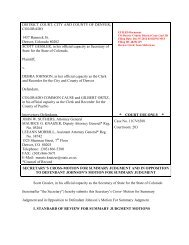
![Download the Letter [PDF] - Brennan Center for Justice](https://img.yumpu.com/50139248/1/190x245/download-the-letter-pdf-brennan-center-for-justice.jpg?quality=85)
